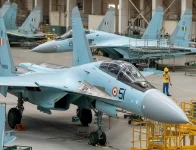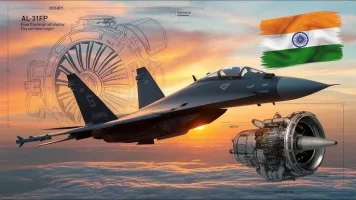
The UK's decision to cede sovereignty of the Chagos Archipelago to Mauritius marks a significant turning point in international relations and has reshaped the geopolitical landscape of the Indian Ocean.
This move, long sought by Mauritius and supported by India, concludes a decades-long dispute rooted in colonial history while ushering in a new era of strategic considerations for the region.
The handover, finalized this week, follows mounting pressure on the UK from international bodies like the International Court of Justice and the UN General Assembly, as well as key regional players including India.
India, a staunch advocate for decolonization and Mauritius' claim, played a crucial role in encouraging this resolution. The UK's decision aligns with the global consensus and reflects a pragmatic approach to safeguarding its interests while addressing historical injustices.
While Mauritius gains full sovereignty over the Chagos Islands, the agreement ensures the US and UK retain control of the strategically vital Diego Garcia military base for the next 99 years. This base serves as a critical hub for US naval operations and nuclear submarine logistics in the Western Indian Ocean.
For India, this development presents a complex array of opportunities and challenges. Increased access to Diego Garcia could enhance India's maritime capabilities, providing a forward base for patrolling, anti-piracy operations, and intelligence gathering.
This is particularly crucial in the context of growing Chinese naval activity in the Indian Ocean Region. Closer logistical cooperation with the US at Diego Garcia could bolster India's efforts to counterbalance China's maritime expansion.
However, India must carefully navigate the implications of increased proximity to a major US military installation. Utilizing Diego Garcia raises questions about India's strategic autonomy, a cornerstone of its foreign policy.
Deeper military cooperation with the US could be perceived as aligning India with Western powers, potentially affecting its relationships with non-Western partners like Russia, Iran, and Middle Eastern nations.
Furthermore, the escalating tensions in the Middle East, particularly between Israel and Iran, add another layer of complexity. While India maintains strong ties with Israel, it also values its strategic and economic partnership with Iran. Overt cooperation with the US at Diego Garcia, a key asset in US Middle Eastern operations, could strain India's relations with Tehran.
Despite these complexities, India welcomes the handover of Chagos to Mauritius, a move it actively encouraged. New Delhi views the continued US presence at Diego Garcia favorably, given its close military ties with Washington. However, India is likely to adopt a measured approach to avoid any perception of excessive alignment with the US-UK axis.
India's strategic community will undoubtedly analyze this development through the prism of China's growing influence in the Indian Ocean. With an established naval base in Djibouti and potential future bases in Pakistan, China's strategic footprint in the region is expanding. Countering this influence remains a key priority for India.
The agreement also opens avenues for India to collaborate with Mauritius on maritime security, enhancing its presence in the Western Indian Ocean and providing a counterweight to China.
India can assist Mauritius in capacity-building, particularly in safeguarding its Exclusive Economic Zone (EEZ) from illegal fishing and other maritime threats, a concern shared by both nations due to China's IUU fishing practices.
In conclusion, the UK's handover of the Chagos Islands to Mauritius is a momentous event with far-reaching implications for the Indian Ocean region. While it presents India with opportunities to enhance its maritime security and counter Chinese influence, it also necessitates careful strategic maneuvering to maintain its autonomy and balance its relationships with diverse global partners.


